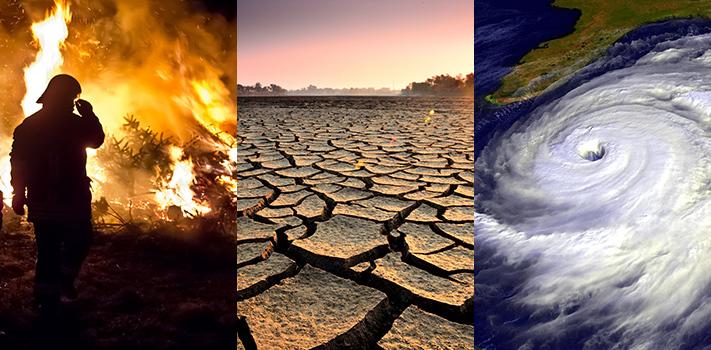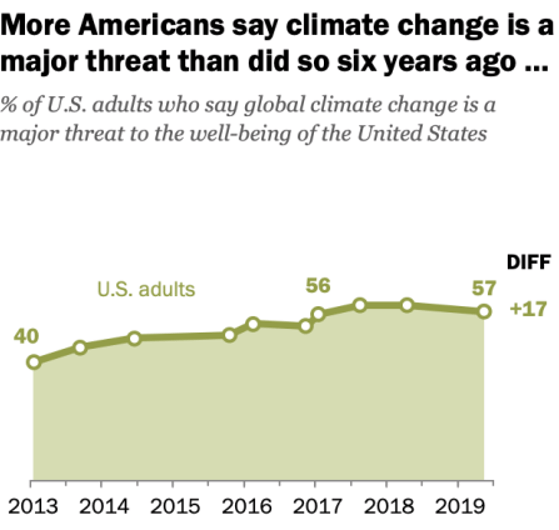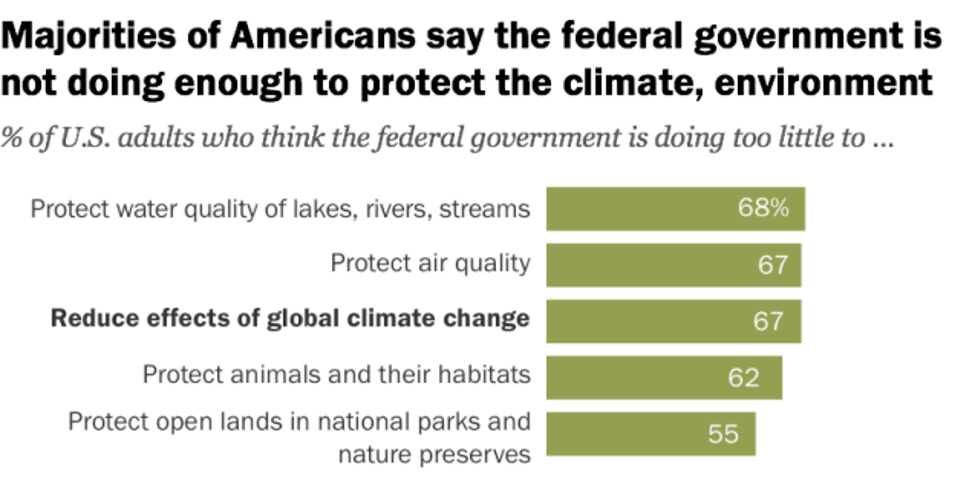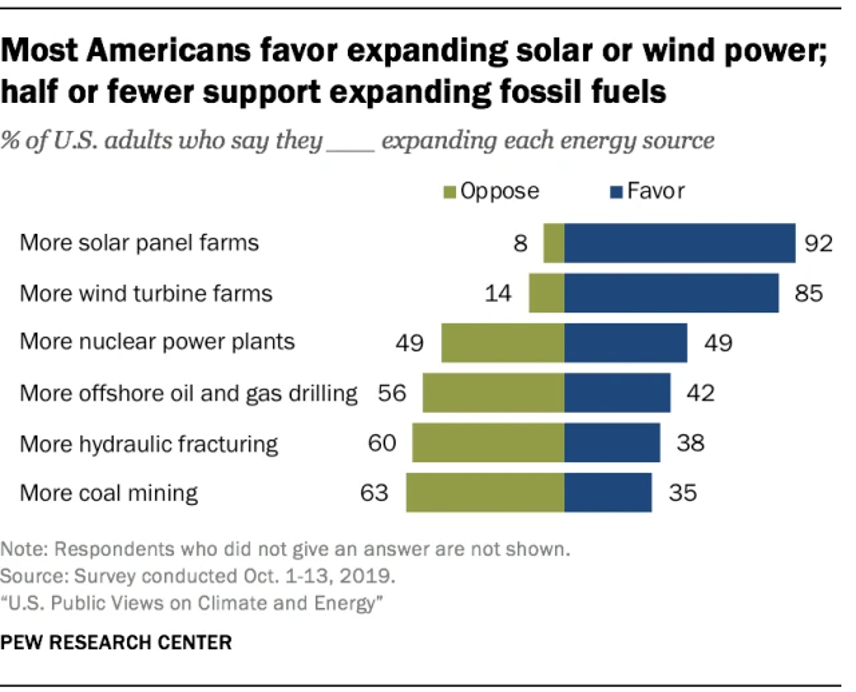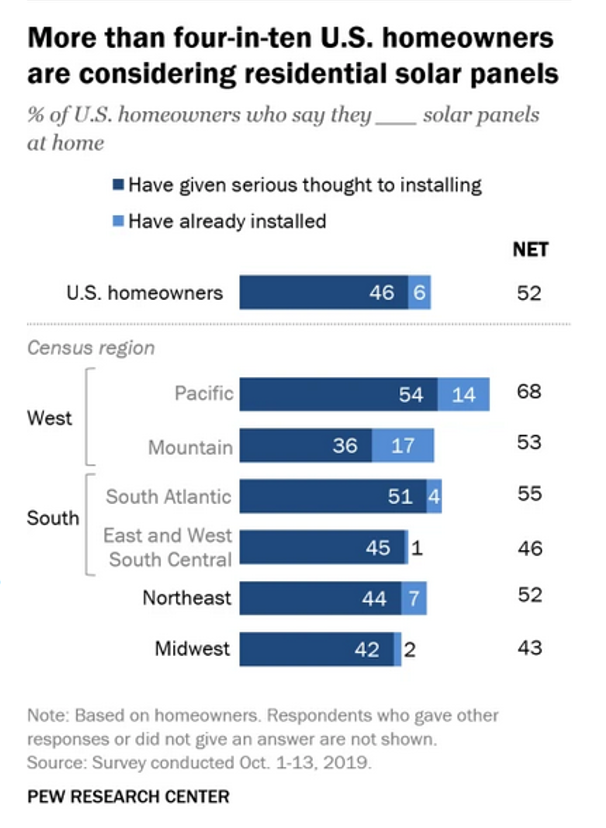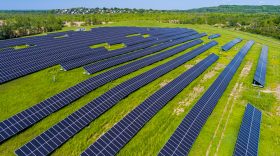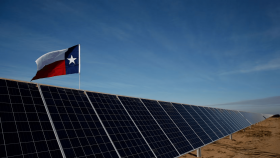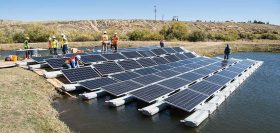Public polling continues to show that the American public is increasingly concerned about the effects of climate change and they are eager to push their elected leaders to action.
Climate Change by the Numbers
The topic of climate change and the role that humans have played in the warming of the planet remains heavily debated within American political circles. The science and facts behind climate change, however, are unmistakable. According to NASA, 97% or more of actively publishing climate scientists agree that “climate-warming trends over the past century are extremely likely due to human activities.” The world’s five warmest years have all occurred since 2015, according to NOAA, with 2019 being the second-warmest year in NOAA’s 140-year climate record (behind only 2016).
The scientific case for urgently addressing climate change is well established, but historically speaking, less than overwhelming consensus among the general public has somewhat dampened the willingness of U.S. politicians to be moved to action when it comes to supporting a widespread pro-renewables policy agenda. That is all beginning to change.
The Pew Research Center is arguably the gold standard when it comes to public polling in the United States. For decades, Pew has conducted polling on political, social, cultural, and economic topics that are of interest to the American public. Their time-series data tracking public opinions about climate change gives reason to be optimistic that a shared consensus around climate action is forming.
Polling from July of last year revealed that 57% of Americans agree that “global climate change is a major threat to the well-being of the United States.” This marks a 17-point increase in the share of Americans who agreed with that statement in 2013.
While the greatest gains among those agreeing that climate change threatens the well-being of the country are concentrated among self-identifying Democrats, it is notable that over time, people of all political persuasions have become more likely to agree on the topic. The share of Liberal Democrats and Moderate/Conservative Democrats agreeing with the statement increased by 30 points and 21 points respectively. The gains experienced among Moderate/Liberal Republicans (+9 points) and Conservative Republicans (+5 points) were less dramatic, but still noteworthy. The sooner that climate change stops being a partisan issue, the sooner that bipartisan progress can be achieved on the most pressing issue of our time.
Not only are a majority of Americans in agreement that climate change threatens the nation’s well-being, but clear majorities also agree that the federal government should be doing more to combat the effects of climate change. Over two-thirds of Americans believe that the “federal government is doing too little to reduce effects of global climate change,” according to polling conducted last October. Findings are similar for those saying that the government should ramp up efforts to protect air (67%) and water quality (68%).
Global Warming Effects Getting Harder for Public to Ignore
One of the powers of social media is its ability to connect people who are worlds apart. This helps to build a shared sense of global awareness around topics and current events that would otherwise be impossible to achieve during the era of traditional media.
The historic and devastating brushfire crisis that ushered in the new year in Australia is one such example. Heartbreaking images and videos of the debilitating impact of the brushfires on the people, wildlife, and habitat of Australia captured the attention of a global audience. Damage assessments continue, but the accumulated loss of property and natural habitat from the brushfires is staggering. The fires have burned through over 46 million acres of land, destroyed over 5,900 buildings, killed at least 34 people, and have killed an estimated one billion animals.
The effects of climate change don’t manifest themselves in isolated weather events, but weather-related catastrophes – like the Australian brushfires – create a heightened sense of urgency among even casual observers in the general public. This reality is likely a key contributing factor to the growing shift in public opinion on climate change as well-publicized and high impact natural disasters have become more commonplace in recent years.
Americans Agree That Solar is the Future
Solar capacity in the United States has increased exponentially in this century alone. The fact that the widespread growth in solar energy adoption across residential, commercial, and utility sectors has coincided roughly with an uptick in the share of Americans who feel that climate change threatens the well-being of the country is no accident. Americans know that the solutions to reversing the ill effects of climate change are right in front of us, and support for more solar energy and renewable energy adoption has never been higher.
An October 2019 survey by Pew revealed that 77% of adults in the U.S. say that developing alternative energy is the “more important priority for U.S. energy supply,” compared with just 22% who said the same about expanding fossil fuels. In the same survey, a whopping 92% of respondents were in favor of there being “more solar panel farms” in the United States, including clear majorities of self-identifying Republicans (86% in favor) and Democrats (96% in favor).
This sky-high support for “solar panel farms” implies that Americans want government, utilities, and corporations to make the large-scale solar infrastructure investments needed to wean the country off of fossil fuels. However, the share of Americans willing to assume the burden themselves and embrace solar investments on their own residences also continues to rise. In 2019, 46% of homeowners stated that they gave serious thought to installing solar panels on their home, an increase from the 40% who said so just 3 years prior.
The fact that almost nine-in-ten Republicans and nine-in-ten Democrats support more investments in solar farms in the United States is no small feat. It is also an important reminder of the overwhelming popularity that solar energy enjoys in the country. Meanwhile, public consensus continues to steadily build for a more urgent approach to tackling the world’s climate crisis. Although the current political climate can make pro-renewables enthusiasts feel helpless and pessimistic about the future of our planet, the abundance of public polling provides reason to be optimistic. Quite simply, Americans know the urgency with which we must act to reverse the effects of climate change and they know what can get us there. It’s high time for Americans politicians to reflect this clear will of the people.
Cover Photo Source: NY Times
